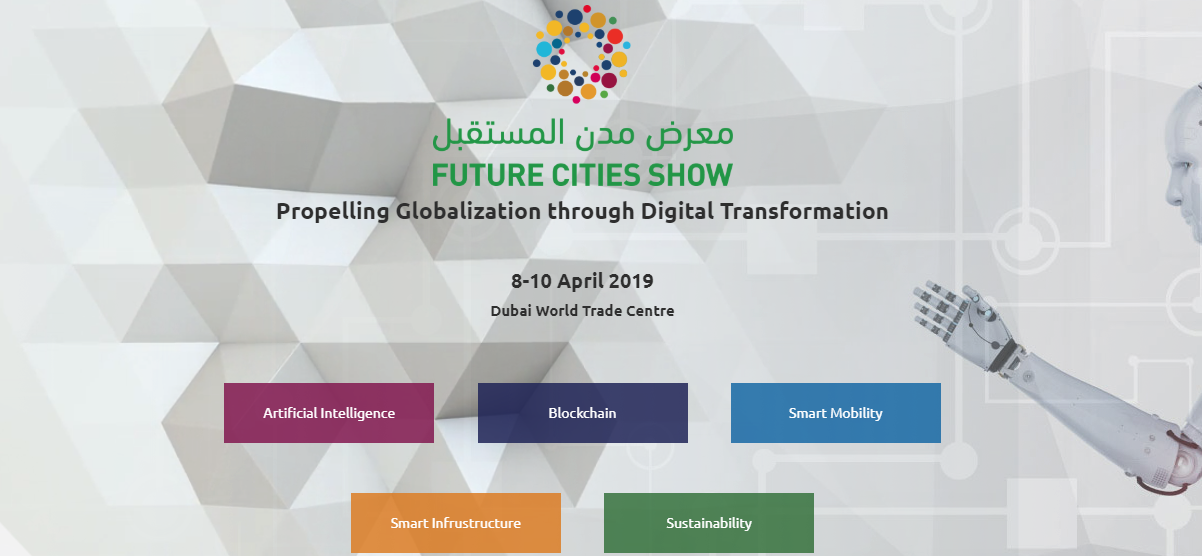- Market to witness 15.8 percent CAGR
- In MENA region, smart city spending forecasted to double by 2022
- Future Cities Show 2019 to tackle role of IoT, AI, blockchains, among others, in building smart cities
The global market for smart city information and communications technology (ICT) is forecasted to hit the USD 994.6-billion mark by 2023 from USD 476.7 billion in 2018, representing a compound annual growth rate (CAGR) of 15.8 percent, a report by BCC research showed. The report attributed the exponential expansion to the rising number of smart cities worldwide in light of the rapid urbanization rate, booming population, and calls for sustainable development.
North America is seen to take the lead in terms of market size but Asia-Pacific will experience the highest growth at 18.9 percent CAGR, the report said. In MENA region, a separate study conducted by KPMG revealed that smart city spending will double from USD 1.3 billion to USD 2.7bilion by 2022.
Advertisement
“Advanced technologies are at the very heart of a connected and automated city of the future. This reality is the influential force behind the flourishing global smart city ICT market worldwide as presented by the BCC research. Sensors, the Internet of Things (IoT), robotics and machine learning, blockchain, artificial intelligence (AI), and many more are going to serve as a foundation for smart cities and their complex ecosystems. Discussions on the role of technologies in connectivity and sustainability, among others, will take the centre stage at the 2019 edition of the Future Cities Show in Dubai, where experts, leaders, and stakeholders will convene to tackle opportunities and challenges in establishing genuine smart cities,” said Dawood Al Shezawi, President of Strategic Marketing and Exhibitions, the organiser of the Future Cities Show.
Advertisement
The show’s third edition will take place from 8th to 10th of April 2019 at the Dubai World Trade Centre under the theme ‘Propelling Globalization through Digital Transformation’.
Geospatial and 5G technologies as well as virtual reality and augmented reality will also play a role in enabling the growth of smart cities and are seen as fundamental backbones of smart city projects.
Al Shezawi said: “These advanced solutions will be used for waste management, intelligent lighting, parking and traffic control, pollution monitoring, and efficient public transportation system. The possibilities are simply endless. We have to continue our dialogues to ensure that we are harnessing the full potentials of new technological innovations available today. If technologies are properly utilized, the benefits are going to be enormous.”
Barcelona, one of the world’s best smart cities along with Singapore and London as per the report of Philips Lighting released in 2018, is said to have been reaping the benefits of deploying IoT solutions. According to the report, the implementation led to the creation of an estimated 47,000 jobs, savings of EUR 42.5 million on water, and increased revenues of EUR 36.5 million a year through smart parking fees.
Future Cities Show will focus on five leading future city solutions, namely AI, blockchain, smart infrastructure, smart mobility, and sustainability. It will also provide a platform to ensure that the latest technological projects will have the opportunity to secure medium- to large-scale investments. In addition, the show will highlight the achievements and plans of its host city, Dubai, such as Dubai 10X Initiatives set by H.H. Sheikh Mohammed bin Rashid Al Maktoum, UAE Vice President, Prime Minister and Ruler of Dubai.







